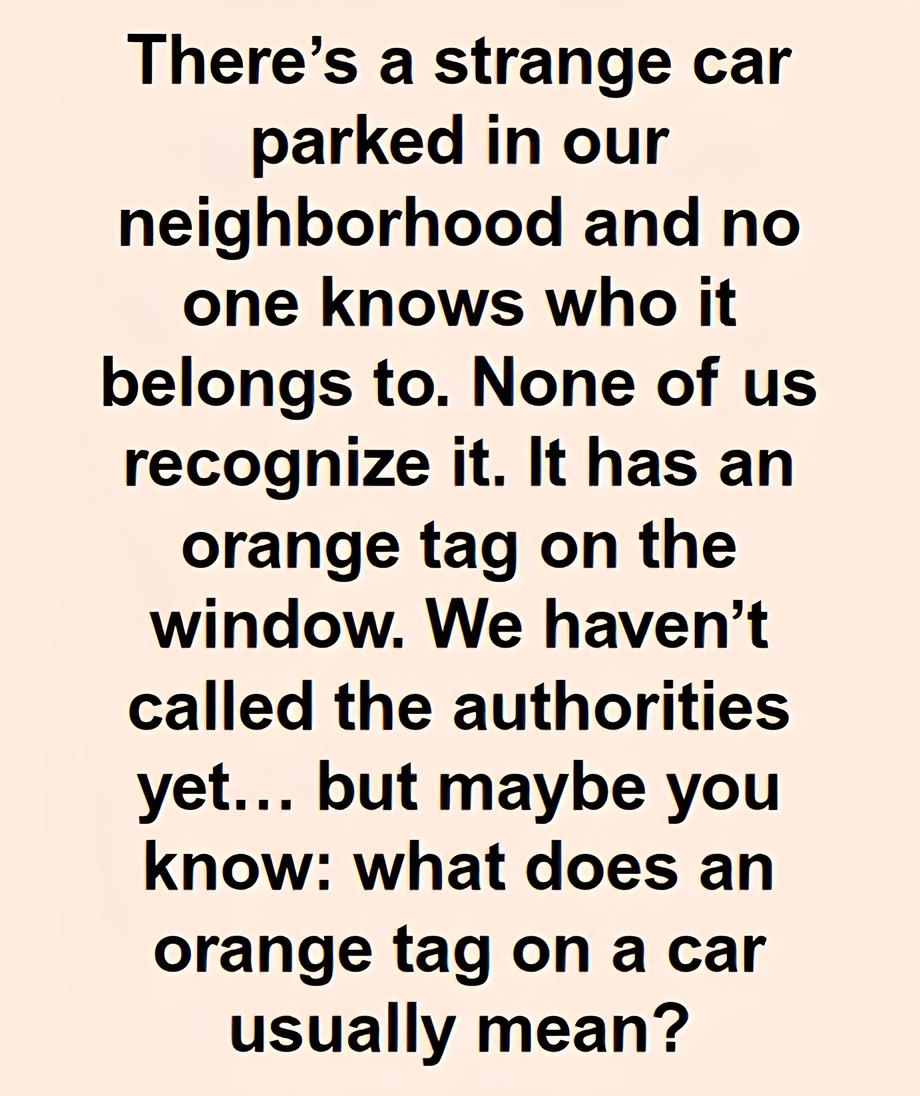If you ever walk up to your car and notice a bright orange tag stuck on your windshield or rear window, don’t brush it off or assume it’s just some kind of harmless notice. That vibrant orange paper isn’t for decoration—it’s a warning, and more importantly, it’s a signal from local authorities that your vehicle might be at risk of being impounded.

These tags are placed by law enforcement agencies or local parking enforcement officials, and they’re used specifically to identify vehicles that are suspected of being abandoned, inoperable, or posing some kind of hazard to the community. The presence of an orange tag means that someone has flagged your car as potentially problematic, and if you don’t take action fast, your car could be towed and possibly even auctioned off. So what exactly leads to a car getting tagged in the first place? It depends on the city or state you’re in, but generally, the reasons are fairly consistent. A car might be considered abandoned if it’s visibly damaged, missing major parts like wheels or a bumper, or clearly not drivable. It could also be flagged if it’s been parked in the same spot for too long—sometimes just 72 hours is enough to raise red flags, especially in high-traffic areas or on public streets.
In other cases, if a vehicle is blocking access, causing a safety concern, or is parked in an illegal or inappropriate spot, officials may place a tag to begin the process of removing it. While seeing a tag might trigger panic, it’s important to stay calm and act quickly. The first thing you should do is contact your local police department or parking enforcement office. Ask them why your vehicle was tagged and what your next steps should be. Every municipality has its own rules, so understanding exactly what’s required in your area is essential. In some places, you may be given just a few days to fix the issue, whether that means moving the car, repairing it so it’s roadworthy, or proving that it isn’t abandoned. If you believe the orange tag was issued in error—for instance, if your car is parked legally and in good condition—you might be able to challenge the decision.
Some jurisdictions allow for a formal appeals process, and this is where documentation becomes important. Take photos of your vehicle, its location, and any relevant details that could help your case. Maybe you were out of town, or perhaps the car is fully functional but just has cosmetic damage. Whatever the reason, presenting a clear and respectful case to the authorities may lead to the tag being dismissed. But whether you plan to contest the tag or comply with the instructions, time is not on your side. Many cities give vehicle owners only a short window—sometimes as little as three days—before towing procedures begin.
That means ignoring the tag or delaying your response could cost you a hefty towing fee, storage charges, and possibly the vehicle itself if it ends up at auction. Understanding what these orange tags mean is crucial because they indicate a serious situation. They’re not issued for minor infractions like expired meter parking; they’re reserved for situations where a vehicle is considered a nuisance or liability. And even if you don’t think your car fits that description, the person who tagged it obviously did, so taking the matter seriously is in your best interest. If you spot one of these tags on someone else’s vehicle, it may be a sign of larger issues in the neighborhood, like abandoned cars cluttering up the street or people using public spaces to store vehicles long-term. In those cases, the tagging process helps clean up the area and restore proper use of public spaces. But if the orange tag is on your own car, treat it as a call to action. Take the necessary steps immediately—communicate with authorities, fix any issues, move your vehicle if needed, and provide documentation if you plan to appeal. Doing so can help you avoid unnecessary penalties and ensure your car stays in your hands rather than getting towed away. Staying informed and proactive is the key to navigating the orange tag process without losing your vehicle.





